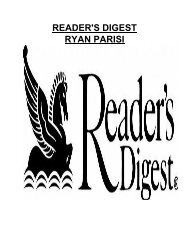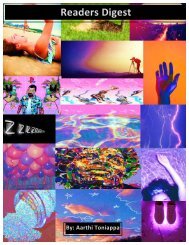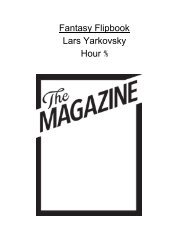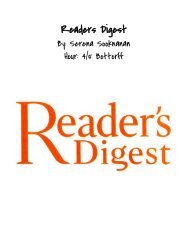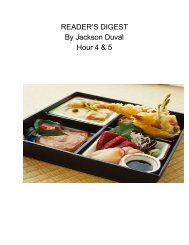Zoha Haider RD
Create successful ePaper yourself
Turn your PDF publications into a flip-book with our unique Google optimized e-Paper software.
Who Knew? Facts You Probably Didn’t Know<br />
What would bounce higher, a glass ball or a rubber one?<br />
Did you know that a ball made of glass will bounce higher than a ball made of rubber?<br />
Seems impossible, but it’s true! When a rubber ball hits a surface, it deforms a little. This makes<br />
it lose energy. Unlike the rubber ball, a glass ball does not squish against the surface before<br />
jumping up. This retains energy for it to bounce higher. A way to test how well it will bounce<br />
back up is to test how it rings. When you strike a marble, you can hear a ringing sound, same<br />
for a bell, or a bouncy ball. For example, if one bell is made of rubber and another is made of<br />
glass, which one do you think will ring louder? The glass one will definitely ring louder, also<br />
meaning that it will bouncer higher. If you compare the sound of a glass bell to a steel bell, you<br />
will find that the steel bell has more sound. A steel ball will bounce higher than a ball made of<br />
glass. You can test it for yourself, get a rubber ball, a glass ball, and a steel ball. Drop from a<br />
height of a few centimeters on a hard surface. You will find that the glass ball will bounce higher<br />
than the rubber ball, and the steel ball will bounce higher than the glass ball.<br />
Source<br />
https://sciencenotes.org/why-a-glass-ball-bounces-higher-than-a-rubber-ball/<br />
Need to memorize vocab words?<br />
Did you know that after learning new information, taking a nap can help your retain the<br />
new information you learned?Many studies prove this fact. A study of preschoolers that took a<br />
nap after learning new verbs proved that they knew them better after 24 hours compared to<br />
preschoolers that didn’t take nap.According a harvard study in 2010, volunteers were taught<br />
how to navigate a maze. During a break, select few were allowed to take a 90 minute nap.<br />
Those who were allowed to sleep, did overall better than those who did not. A german study<br />
proved that a nap of six minutes helped volunteers memorize a list of 30 words. Different length<br />
naps help you with different things, although all naps allow for information to be processed.<br />
Sources<br />
8




